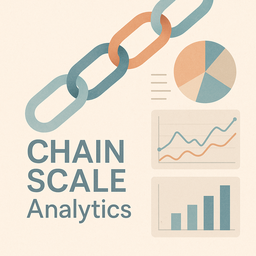Selected Rust Success Stories

ChainScale Analytics
A blockchain-analytics SaaS processing 4 TB of ledger events per day struggled to keep query latency under two seconds during market peaks. Their CTO resolved to Hire Rust developer expertise to overhaul the event ingestion pipeline while continuing feature releases.
We staffed a blended pod of four Rust engineers who paired remotely with the client’s Go team. The group introduced an actor-based ingestion service, implemented SIMD-accelerated bloom filtering, and migrated hot paths to asynchronous Rust—all behind feature flags to ensure incremental rollouts.
After 12 weeks, sustained ingest throughput rose by 64 % and p95 API latency fell to 1.3 s. Quarterly cloud spend dropped by 22 %, enabling the company to add real-time NFT analytics without increasing budget. Developers now release schema changes twice weekly with zero downtime.

Microsecond Markets
A high-frequency trading firm handling 12 million orders daily needed to shave microseconds from its matching engine. The executive team’s mandate was clear: Hire Rust developer expertise without slowing the release calendar.
We embedded a two-person augmented Rust squad alongside their quant engineers and followed a rolling weekly release cadence. One developer refactored the order book into lock-free data structures while the other implemented kernel-bypass networking, all within existing CI pipelines.
After eight weeks, end-to-end latency in peak loads dropped by 37 %, while CPU utilisation fell by 18 %, enabling the desk to quote tighter spreads and capture additional daily PnL. The upgrade also freed six hardware cores per co-location server, postponing a planned $280 k hardware refresh by four quarters. Operational risk fell too.

Secure Smart Sensors
An industrial IoT sensor manufacturer shipping firmware to 250 000 field units faced escalating recall risk. Quality audits warned that their monolithic C codebase kept spawning memory leaks. Leadership decided to Hire Rust developer talent to harden the next firmware version without interrupting production lines.
Our augmented Rust team of three engineers worked in split shifts with the client’s embedded group. We carved out critical parsing modules, rewrote them in safe Rust, and introduced zero-copy buffers while leaving peripheral drivers untouched.
Over 10 sprints, firmware size shrank by 42 % and boot-time RAM dropped by 35 %. Post-deployment telemetry reported zero crashes across 1.8 million operating hours, saving an estimated $1.4 million in avoided field service. The success has positioned the company to certify IEC 62443 compliance six months ahead of schedule.
